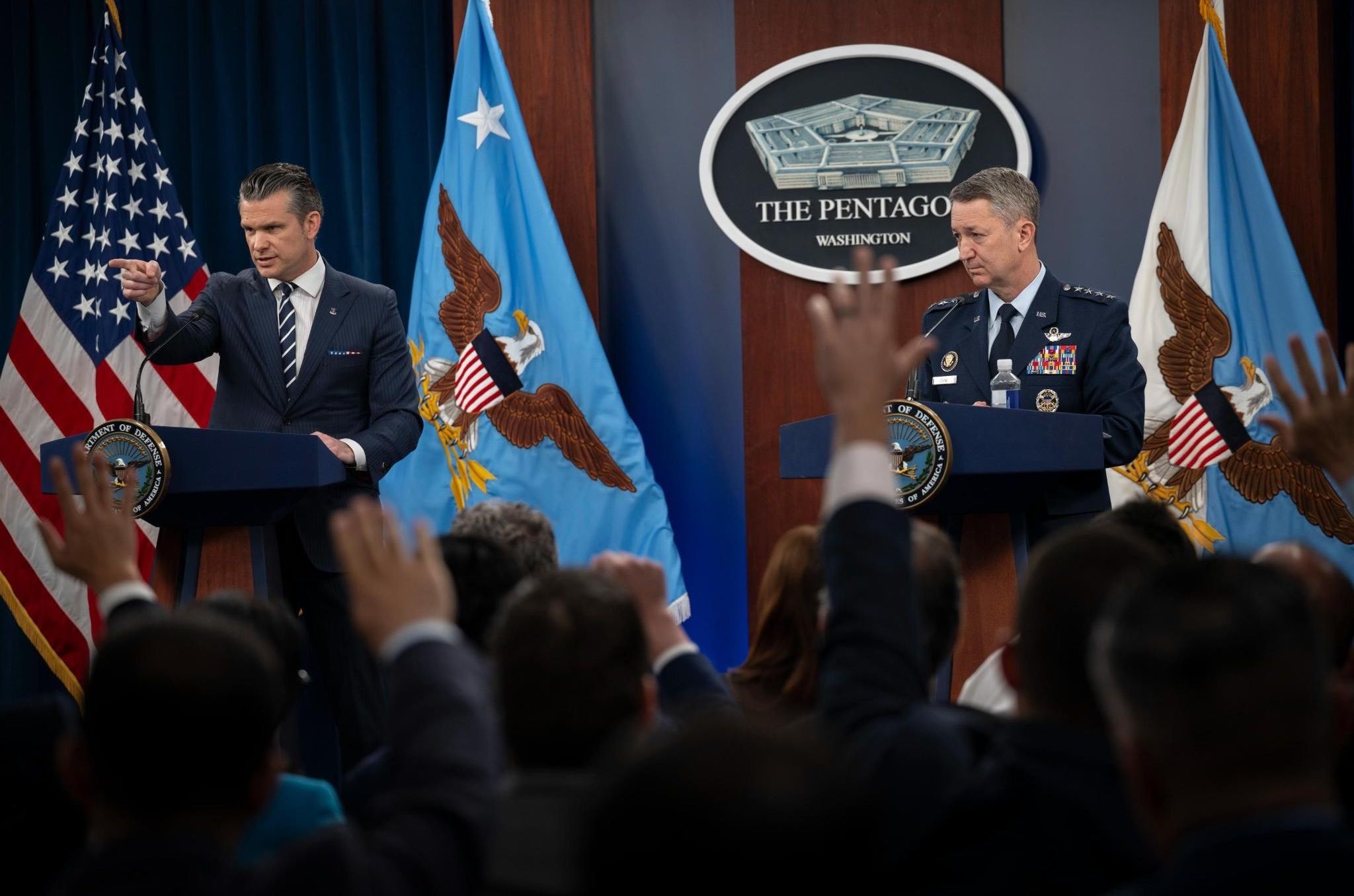President Trump and other White House officials are suggesting that questioning the decision and efficacy of bombing Iran shows a lack of patriotism and disparages American troops.
These claims harken back to the Iraq War when supporters of the policy insisted that critics or skeptics were simply anti-American or didn’t support the troops.
In a media press conference today, Secretary of Defense Pete Hegseth discussed the operation’s success and fielded questions from the press, while President Trump shared his opinion on social media.
“Secretary of Defense (War!) Pete Hegseth, together with Military Representatives, will be holding a Major News Conference tomorrow morning at 8 A.M. EST at The Pentagon, in order to fight for the Dignity of our Great American Pilots,” posted President Donald Trump.
“After 36 hours of dangerously flying through Enemy Territory, they landed, they knew the Success was LEGENDARY, and then, two days later, they started reading Fake News by CNN and The Failing New York Times. They felt terribly!”
Hegseth repeated the shopworn trope during the presser.
“What's really happening is you're undermining the success of incredible B-2 pilots and incredible F-35 pilots and incredible refuelers and incredible air defenders who accomplished their mission, set back a nuclear program in ways that other presidents would have dreamed,” Hegseth told reporters during the news conference.
“How about we celebrate that? How about we talk about how special America is, that we — only we have these capabilities? I think it's too much to ask, unfortunately, for the fake news.”
The CNN report, based on a preliminary Defense Intelligence Agency assessment, suggested the strikes did not hit all of their targets and likely only set Tehran’s nuclear program back months, rather than the originally claimed “obliteration.”
The report’s accuracy has been contested by members of Trump’s administration, including an alternative assessment, also covered by CNN, by CIA Director John Ratcliffe on Wednesday.
“Based on everything we have seen — and I’ve seen it all — our bombing campaign obliterated Iran’s ability to create nuclear weapons,” Hegseth said. “Our massive bombs hit exactly the right spot at each target and worked perfectly.”
White House Press Secretary Karoline Leavitt also challenged the DIA report and intent of the reporters, saying on Wednesday, “the leaking of this alleged assessment is a clear attempt to demean President Trump, and discredit the brave fighter pilots who conducted a perfectly executed mission to obliterate Iran’s nuclear program.”
Trump demanded an apology.
“FAKE NEWS REPORTERS FROM CNN & THE NEW YORK TIMES SHOULD BE FIRED, IMMEDIATELY!!! BAD PEOPLE WITH EVIL INTENTIONS!!!” chided Trump, adding “the Fake News should fire everyone involved in this Witch Hunt, and apologize to our great warriors, and everyone else!”
As a strategy to rebuff challenges to its claims of “mission accomplished,” the Trump administration is sprinkling in suggestions that those who don’t trust the administration’s judgment are un-American or are somehow insulting the pilots who ran the mission themselves. But this isn’t new.
“Hegemonic discourse framed troop support as support for the mission of the (Iraq) War. The rhetorical phrase ‘support the troops’ is found on a variety of publicly available White House documents regarding the Iraq War, including budget requests that encouraged Congress to approve ad-hoc funding for the war,” claims Dr. Lisa A. Leitz, professor and chair of the Department of Peace Studies at Chapman University.
She adds, “This rhetoric intensified during the 2004 U.S. Presidential election. For example, a widely distributed Bush-Cheney 2004 campaign advertisement characterized Sen. Kerry’s vote against continued war funding as a vote “against funding our soldiers.”
- Hegseth confirmed: This is where we find out his true mettle ›
- Update: US warnings, evacuations came only a day before attacks ›
















